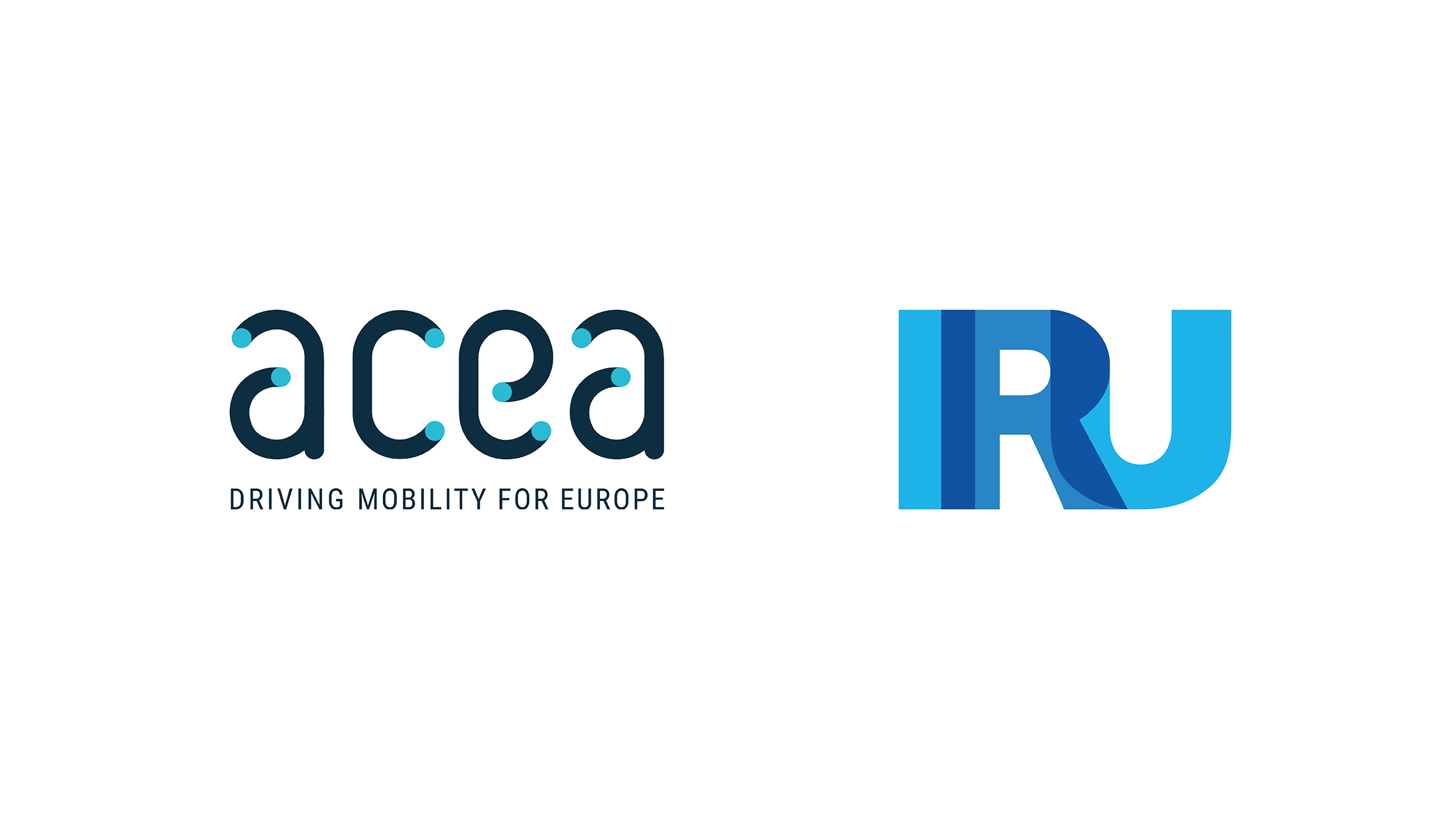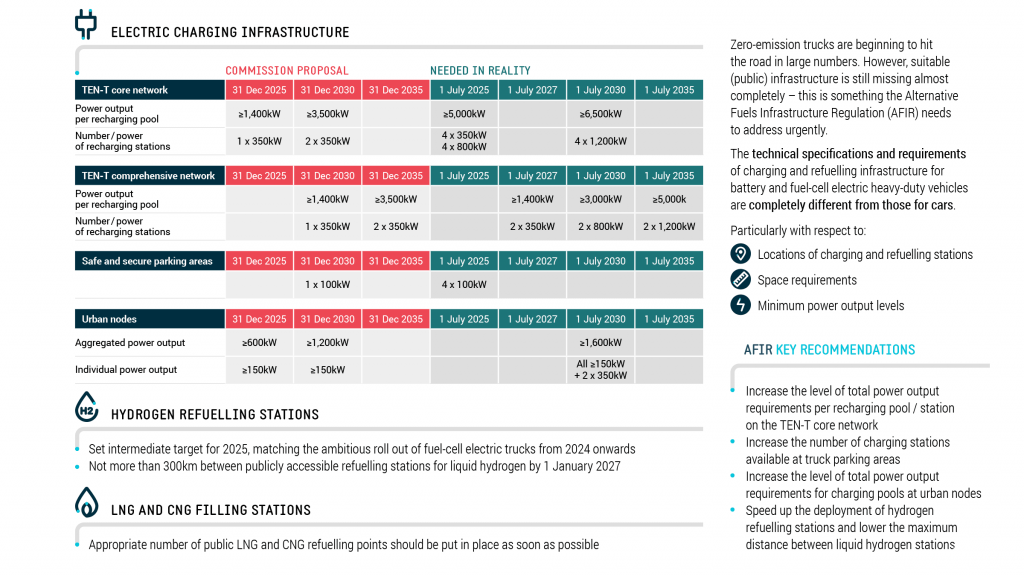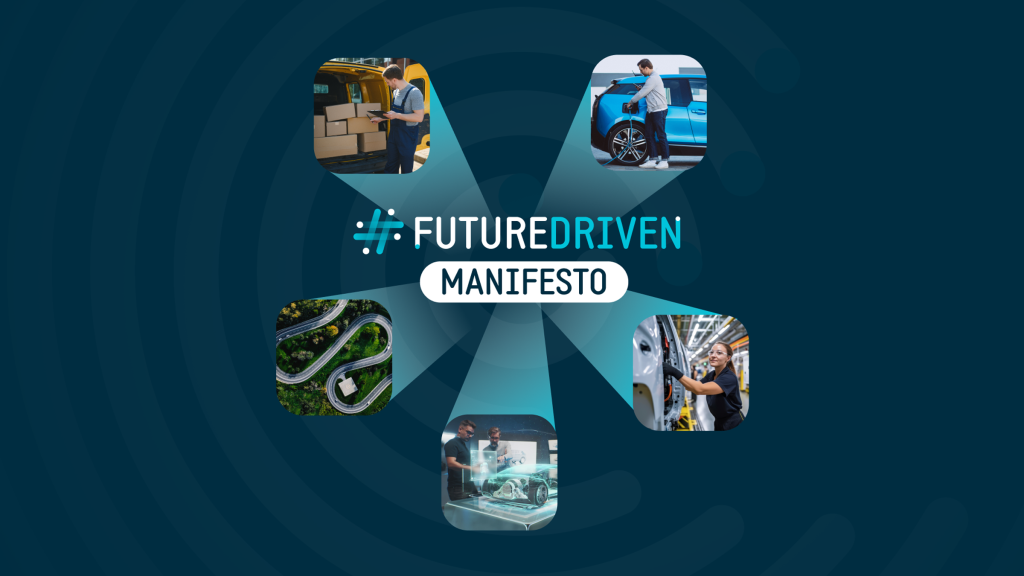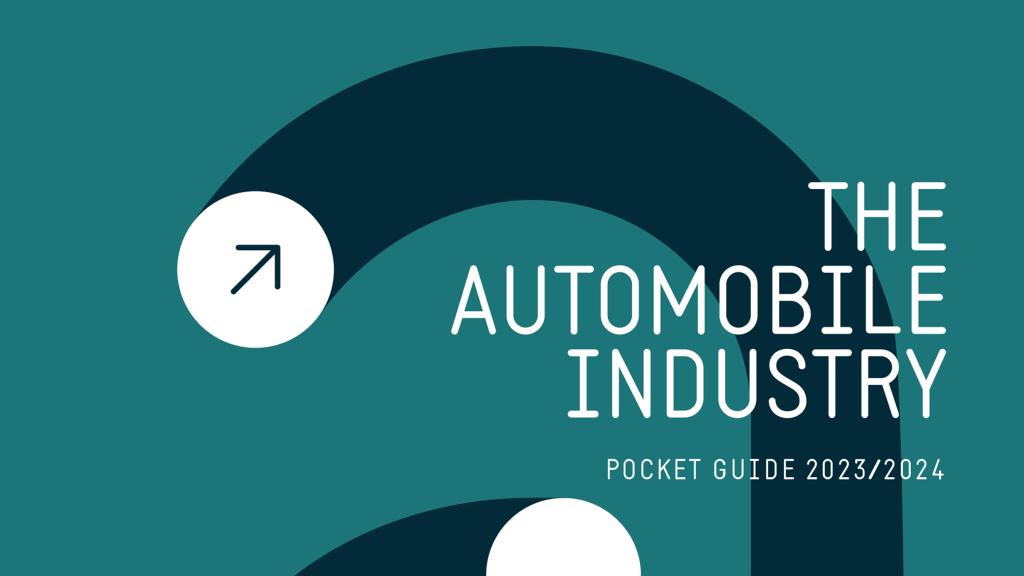AFIR : EU negotiators must urgently set ambitious charging and refuelling infrastructure targets

Ahead of the trilogue negotiations on the Alternative Fuels Infrastructure Regulation (AFIR), the European Automobile Manufacturers’ Association (ACEA) and the International Road Transport Union (IRU) call on the Council, the European Commission and European Parliament to urgently commit to ambitious targets for electric charging and hydrogen refuelling infrastructure for heavy-duty vehicles.
Truck manufacturers are already producing a wide range of battery-electric trucks and this will soon be followed by the production of hydrogen-powered vehicles. Demand for these new trucks is rapidly increasing but remains severely constrained by insufficient crucial enabling conditions, most importantly the lack of charging and refuelling infrastructure.
A dense network of charging and refuelling stations suitable for heavy-duty vehicles is an indispensable prerequisite for the sector to achieve the ambition level proposed with the new CO2 standards for heavy-duty vehicles and the objectives set out in the ‘Fit for 55’ package.
ACEA estimates that to reach a CO2 reduction target of -45% by 2030, as recently proposed by the European Commission, more than 400,000 zero-emission trucks will have to be on the road, and at least 100,000 new zero-emission trucks registered annually. This would require over 50,000 publicly accessible suitable for trucks to be in operation in the EU within just seven years, of which some 35,000 should be high-performance chargers (megawatt charging system). Additionally, it would require some 700 hydrogen refilling stations.
Ahead of the trilogue negotiations on AFIR, ACEA and IRU call on the negotiators from the three EU institutions to:
- Support the level of ambition set for vehicle manufacturers by committing member states to equally ambitious infrastructure targets.
- Enable the swift deployment of electric charging infrastructure for heavy-duty vehicles on the TEN-T core and comprehensive network, including in urban nodes, by 2025 and a full ramp-up by 2030 at the latest.
- Create the right conditions to allow the fast deployment of hydrogen refuelling infrastructure on the TEN-T core and comprehensive network, including in urban nodes, by 2027 at the latest.
- Ensure a robust presence of electric charging stations in each safe and secure parking area for commercial vehicles by 2027 and full ramp-up by 2030.
- Seriously consider the distinct needs of heavy-duty vehicles by setting high power output requirements for electric charging infrastructure to allow business continuity, as well as full compliance with EU social legislation applicable to road transport.
The two associations call for trilogue negotiations on AFIR to be concluded as quickly as possible to provide the necessary legal and investment certainty to the commercial road transport sector.
A dense network of charging and refuelling stations suitable for heavy-duty vehicles is indispensable to accompany the implementation of the new CO2 standards for trucks and buses.



